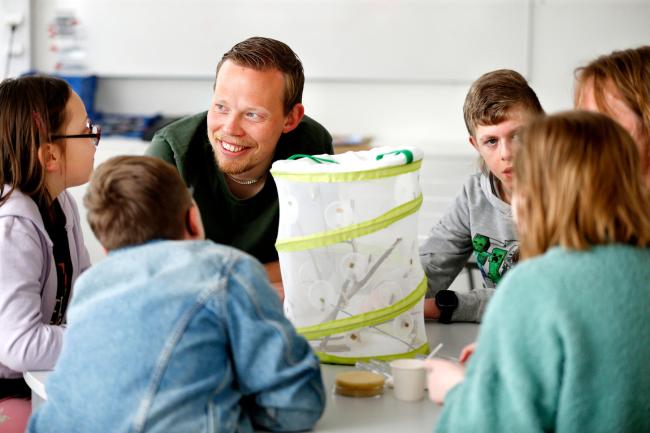Motivational Interviewing can support teachers in their relational work
2025-05-14Teachers in today’s schools are faced with many challenges. Especially when it comes to building relationships with pupils and guardians. Martina Jordan, recent PhD graduate in educational work at Karlstad University, has investigated the use of Motivational Interviewing (MI) in schools, focusing on how MI can enhance teacher efficacy in facing challenges related to building relationships, and facilitate collaboration around positive change.
Martina Jordan’s doctoral thesis shows that the conversational method MI is useful in a variety of situations; in building relationships with pupils, managing conflicts, in conversations with guardians and responding to challenging student behaviour. MI is a goal-oriented conversational style used to increase ndividuals’ motivation for change and growth, and is based on an empathetic approach and four key processes; engaging, focusing, evoking and planning. The method is also based on concrete conversational skills, where the MI practitioner uses affirmations, open questions, reflections and summaries.
"If something has happened at school and a teacher is speaking with upset guardians, MI can offer a concrete way to structure the conversation and facilitate collaboration with the guardians, says Martina Jordan. MI is also useful in conversations with pupils. This may be about evoking their motivation to look ahead and set goals."
A concrete and helpful tool
Martina Jordans doctoral thesis consists of three sub-studies. The first includes interviews with teachers in years 4-9 who are already using MI, to study their experiences of implementing MI in a school setting.
The second sub-study is a quantitative intervention study where Martina trained a group of teachers in MI. This also included 478 pupils in years 5-6. Through surveys before, during and after the training, she has looked at whether an MI-based intervention could increase teacher efficacy and autonomy-supportive teaching, and whether the intervention could increase the pupils’ academic motivation and experience of autonomy support in the classroom.
The third sub-study focuses on the implementation of MI at a school, where Martina trained the teachers in MI, the difference here being that the headteacher of the school initiated the training. Through focus group interviews, she investigated the experiences teachers have of implementing MI in schools after participating in an MI-based professional development initiative.
"My findings show that MI is a concrete and useful tool in the relational work in schools. The results of the second sub-study also show that MI training can increase teachers’ efficacy in engaging students and managing various classroom situations. Unfortunately, the intervention did not increase pupils’ academic motivation over time, and the thesis also highlights how complex it can be to implement a new approach, an intervention, in school settings. The study was also conducted in the midst of the COVID-19 pandemic, which may have affected the results. The results of the third sub-study show that school heads play an important role in the implementation of professional development initiatives in schools, and that sufficient allocated time is required to give teachers the opportunity to learn and apply MI in practice."
Martina Jordan reflects on the idea that MI might be easier to use in conversations with older pupils, who have more advanced cognitive abilities to set long-term goals. At the same time, the approach and conversational skills in MI can strengthen efficacy and confidence in one’s abilities in the present moment, for younger pupils as well as teachers and guardians.
"My research shows that teachers do not feel adequately prepared for the relational work in schools, and the teachers who participated in the studies believed that MI would be relevant to include in teacher education in order to better prepare future teachers for motivational and relational work. The approach in MI is about fostering collaboration, showing compassion, acceptance and strengthening the individual’s self-efficacy. Helping individuals to recognise their own abilities. MI could also be relevant for headteachers to use in conversations with their staff, or for teachers supporting one another. MI can be a way of promoting and facilitating social relationships in schools."




